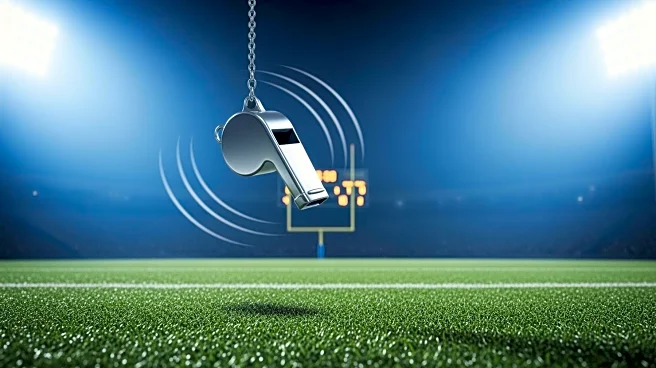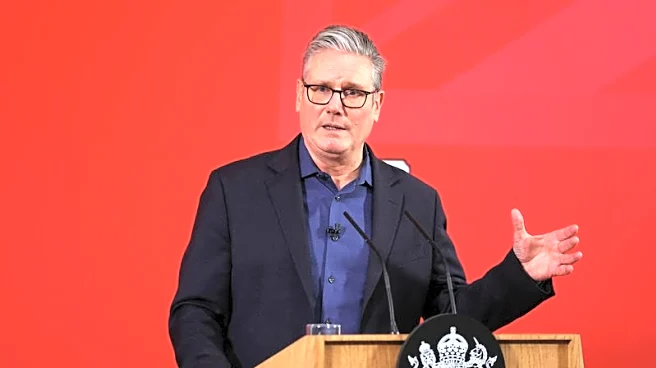What's Happening?
A study conducted by researchers at the University of Texas at El Paso (UTEP) suggests that the Kansas City Chiefs have benefited from biased officiating during the Patrick Mahomes era. The study indicates
that penalties against opposing defenses during Chiefs' playoff games are more likely to result in first downs and cover more yardage, particularly in subjective categories like roughing the passer or pass interference. This research has sparked debate among NFL fans and analysts, with some suggesting that the league may subtly shift rule enforcement to protect its financial interests during commercially valuable periods, such as the playoffs.
Why It's Important?
The findings of the UTEP study could have significant implications for the NFL's reputation and the perceived integrity of its officiating. If the study's conclusions are accurate, it may suggest that the league prioritizes certain teams to enhance market appeal, potentially undermining the fairness of the competition. This could lead to increased scrutiny of officiating practices and calls for more transparency in how games are officiated. Fans of teams that feel disadvantaged by such biases may demand changes to ensure a level playing field, impacting the league's policies and public relations strategies.
What's Next?
The NFL may face pressure to address the concerns raised by the UTEP study, possibly leading to reviews of officiating practices and the implementation of measures to ensure impartiality. Stakeholders, including team owners, players, and fans, may call for more rigorous oversight of referees and the introduction of technology to assist in decision-making during games. The league's response to these findings could influence its relationship with fans and its overall brand image.
Beyond the Headlines
The study raises questions about the ethical dimensions of sports officiating and the potential influence of commercial interests on game outcomes. It highlights the need for ongoing research into the dynamics of sports governance and the balance between business interests and competitive integrity. The long-term impact could include shifts in how sports leagues manage officiating and the role of data analytics in evaluating game fairness.










